If you are working on expanding your family, you may consider incorporating some of these foods that help implantation. Growing families rely on many natural processes to align in order to achieve conception. Food is one of the most essential medicines and catalysts for overall health and wellness.
Exercise, adequate rest, minimal stress, and a well-balanced diet are all imperative for successful implantation and healthy pregnancy. In this article, we will discuss some of the most beneficial superfoods to add to your fertility diet to increase your chances of success!
Jump to:
Trying to Conceive
Whether you are contemplating or just starting out on your trying to conceive (TTC) journey, have been seeing a doctor for fertility treatment, or embarking on in vitro fertilization, ensuring you are receiving the necessary nutrients is vital.
During conception, the sperm fertilizes the egg and travels down the fallopian tubes into the uterus to find a place home on the uterine wall. Once the fertilized egg implants into the uterine lining, the pregnancy begins. From fertilization to implantation (and the missed menses) is commonly called the two-week wait.
Similarly, embryo transfer during IVF treatment goes through waiting after fertilization. The embryo is placed in the uterus and must wait a natural amount of time for implantation to occur. This typically takes 1-6 days. Once your period is missed, you can take a pregnancy test. Some early detection tests can be taken up to 6 days before the missed period.

During this time it is important to relax and take excellent care of your mental and physical health. A healthy diet paired with relaxation techniques and a positive outlook has helped many through the highly anticipated waiting period.
Prenatal Nutrition
Many prospective parents wait to consider prenatal nutrition until after conception. In early pregnancy, a prenatal vitamin is often prescribed to ensure enough key nutrients make it to the mother and developing baby.
Nearly all medical professionals will recommend a prenatal vitamin or other supplementation to ensure adequate nutrition is provided for a successful pregnancy outcome. These vitamins usually consist of folic acid (folate), vitamin C, vitamin D, B vitamins, iron, and DHA.
Among these essential nutrients, folate is the most well-known ingredient in prenatal vitamin formulations. That is because it is believed to prevent neural tube defects in the fetus. Combined with other nutrients like DHA, it helps to support healthy brain and spinal cord development.
Most people can actually receive enough nutrients from a healthy and balanced diet, but others may struggle with micronutrient deficiencies before conception.
Pre-Conception Nutrition
While most think prenatal nutrition and supplements are only effective while actively pregnant, studies have shown that your health and nutrition affect the fetus far before this point. In fact, the nutritional well-being of both parents at the time of conception can have an effect on the developing baby.
The diet and lifestyle choices of the parents, including any micronutrient deficiencies may alter the way the baby's genes are expressed and activated during development.
This concept is called epigenetics, which states that the health and habits of parents and even grandparents can affect the child's health outcome with certain inherited chronic conditions such as obesity, diabetes, and heart disease. The good news is, that a healthy diet and lifestyle before during, and after conception and even birth can help to improve the odds of healthy genetic expressions of your child's DNA.
The best way to improve the health of yourself and your future family is to make health a priority now. This investment will help in many areas of your life, including improving hormonal balance and reproductive health which will support you on your fertility journey.
Note: For those who struggle with PCOS check out this helpful guide to creating the right diet to help PCOS. Also, check out these herbs to help boost male and female fertility.
Foods to Avoid
Studies have shown that fast foods and highly processed foods negatively impact implantation rates while maternal diets rich in healthy, whole foods tend to have higher rates of implantation. When improving your health and implantation odds, it is a good idea to avoid low-quality foods like the following:
Refined Simple Carbohydrates (White Rice, White Sugar, and White Flour)- These foods have been stripped of their nutrients and processed using harsh chemicals. This not only makes them devoid of nutrients, but harmful to your health. They cause dangerous blood sugar spikes and inflammation in the gut.
Trans Fats and Processed Vegetable Oils- These unhealthy fats wreak havoc on heart health and cholesterol while increasing free radicals that cause cellular damage. They are often found in fried and highly processed foods. It is best to use healthy fats like grass-fed butter or ghee, avocado oil, or coconut oil for cooking with heat. Extra virgin olive oil can be used in moderation at medium-low heat to avoid rancidity.
Artificial Sweeteners, Colors, and Additives- All artificial ingredients pose a significant risk to our health. Many reactions can occur including gastrointestinal, respiratory, circulatory, and more. Many have been known to cause cancer and other chronic diseases. Use organic whole foods found in nature rather than chemically processed and altered ingredients. Be sure to check your ingredient labels.
Processed Meats- Processed meats contain many unhealthy artificial additives and preservatives like nitrites and nitrates. These have been linked to high rates of gastrointestinal diseases and even cancer.
Energy Drinks and Sodas- While moderate amounts of organic coffee and tea have not been linked to infertility, highly processed energy drinks have. There are tons of artificial ingredients and abrasive synthetic supplements in these drinks that can not only harm your health but also cause harmful uterine contractions. Learn more in our article coffee vs celsius energy.
Dairy Products- Some health experts believe that dairy products may be inflammatory which, in theory, could interfere with implantation, healing, and balance. If you do use dairy, do so in moderation. Opt for organic, grass-fed dairy wherever possible.
Alcoholic Beverages- Alcohol dehydrates and taxes the system. This creates a stressful environment in the body and is best avoided when trying to conceive.
Helpful Foods to Add
The varying nutrients in food play an important role in several of the body's natural processes, including implantation and IVF success. If you plan to become pregnant now or in the future, it is vital to improve your health and chances with highly nutritious and high vibrational foods.
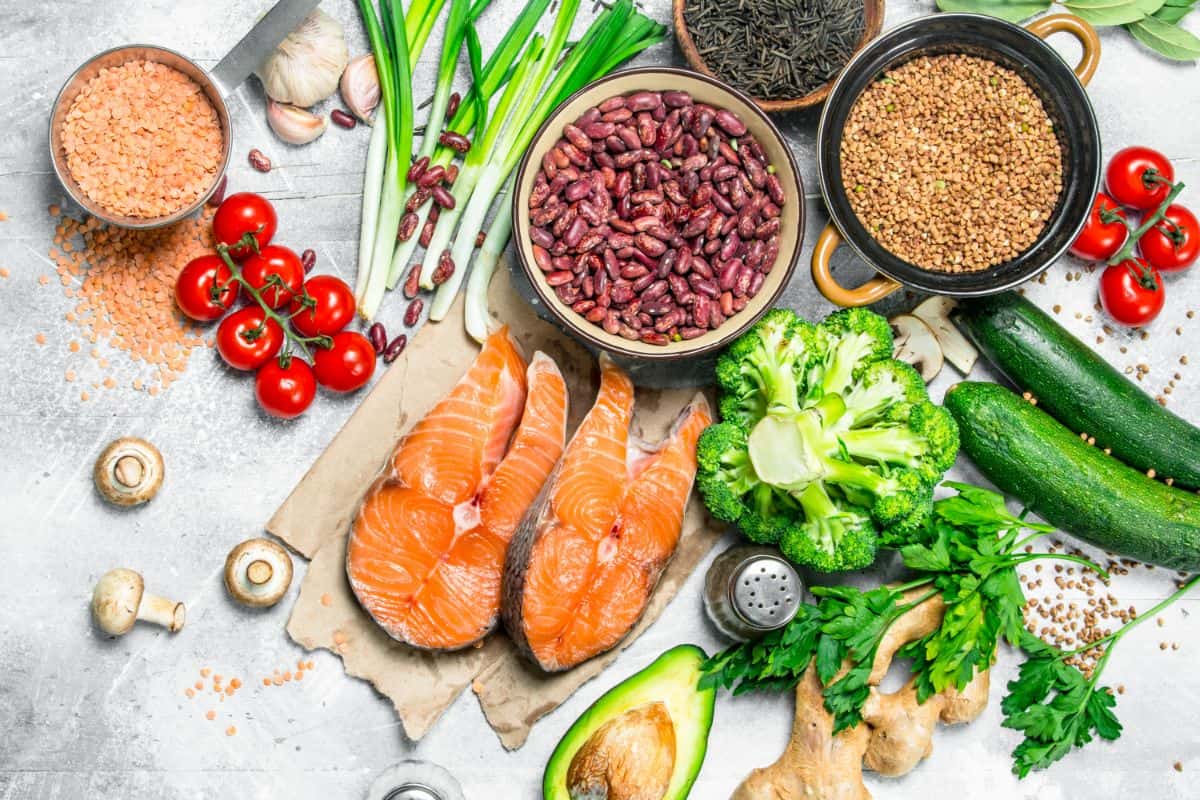
Studies have shown that an anti-inflammatory diet similar to the Mediterranean Diet greatly improves success rates and reproductive system health. Some of the healthiest foods that help implantation include:
Soaked or Sprouted Nuts and Seeds- Nuts like Almonds, Walnuts, Brazil Nuts, Sunflower Seeds, Pumpkin Seeds, Flax Seeds, and Hemp Seeds are all incredible sources of Omega-3 fatty acids, folate, selenium, protein, antioxidants, vitamins, and minerals that help support a healthy system and encourage blood flow to the reproductive organs. This primes and strengthens the uterus for its upcoming visitor and gives your body the needed antioxidants to fight off foreign invaders. Sunflower seeds have also been shown to improve sperm motility and health.
Maca root powder helps both males and females during the conception stages but may not be appropriate to continue during pregnancy. Studies have shown it helps balance hormones and increase sperm quality and motility!
 Lark Ellen Farm Variety Pac...Shop on Amazon
Lark Ellen Farm Variety Pac...Shop on Amazon
Wild-Caught Salmon- Oily fish like salmon provide healthy protein, amino acids, vitamins, minerals, and omega-3s which help heart, brain, and tissue health. Adding this can help boost up the reserves for yourself and your baby when it's time. You may also supplement with a high-quality fish oil supplement for an additional boost. Be sure to buy from a reputable company that tests for heavy metals and doesn't use chemical solvents in its production.
 Wiley's Finest Wild Alaskan...Shop on Amazon
Wiley's Finest Wild Alaskan...Shop on Amazon
Leafy Greens- Leafy green vegetables like spinach, kale, and arugula are packed with micronutrients and phytonutrients that help support several bodily functions. The darker the green color, the better! They also contain high amounts of folate (folic acid) which helps baby to develop a healthy spinal cord. They are also rich in vitamin K which is an essential nutrient that is involved in blood clotting.
 Greens Kale Dino Organic, 1...Shop on Amazon
Greens Kale Dino Organic, 1...Shop on Amazon
Fresh Fruits and Vegetables- Organic fruits and vegetables contain copious amounts of essential vitamins, nutrients, and flavonoids. These nutrients help support a healthy immune system and more. Citrus fruits also contain good amounts of folate and vitamin C. Berries are high in antioxidants and help improve heart and immune health.
Beet Root- Beets are high in nitric oxide which helps relax blood vessels. This ensures the body delivers oxygen to cells for healthy recovery. It also is rich in iron and l-glutamine. This helps the body deliver oxygen, blood, and nutrients to the uterus in preparation for conception and pregnancy.
Seaweed- Sea vegetables like Dulse and Seaweed are the best natural source of iodine. Iodine is an essential nutrient that many with modern-day diets tend to lack.
 gimMe - Sea Salt & Avocado ...Shop on Amazon
gimMe - Sea Salt & Avocado ...Shop on Amazon
Pineapple- This delicious tropical fruit contains antioxidants and the anti-inflammatory agent Bromelain. Be sure the blend or juice the pineapple core, as it contains the most potent amount of this incredible nutrient. It helps reduce inflammation throughout the body, particularly in the uterus, which helps to improve the odds of implantation.
 Pure Encapsulations Bromela...Shop on Amazon
Pure Encapsulations Bromela...Shop on Amazon
Bromelain and other nutrients can also be taken in supplement form. However, be sure to discuss any supplement and dietary changes with a qualified healthcare professional.
For more information on how to boost progesterone naturally, click here!
Prenatal Supplementation
While it is possible to receive adequate nutrients from a well-balanced diet, some healthcare providers may still recommend a supplement. When searching for a supplement, it is imperative to choose organic, whole-food sourced supplements.
This ensures high-quality nutrients are delivered for optimal absorption and assimilation.
Absorption is important in pregnancy and conception. You'll want to ensure the maximum benefit is being achieved for both you and your future child.
Probiotic supplements may also be beneficial for a healthy gut microbiome. A healthy gut ensures nutrient assimilation and immune system health.
 New Chapter Advanced Perfec...Shop on Amazon
New Chapter Advanced Perfec...Shop on Amazon
 MegaFood Baby & Me 2 Prenat...Shop on Amazon
MegaFood Baby & Me 2 Prenat...Shop on Amazon
 MegaFood Baby & Me 2 Prenat...Shop on Amazon
MegaFood Baby & Me 2 Prenat...Shop on Amazon
Again, we are not medical professionals. This post is for informational purposes only. Always discuss healthcare and dietary changes with a qualified healthcare professional.
Are you on a fertility journey? What foods and supplements have you found the most helpful for your overall health? Please share with us in the comments below!
Healthy blessings,
Natalie

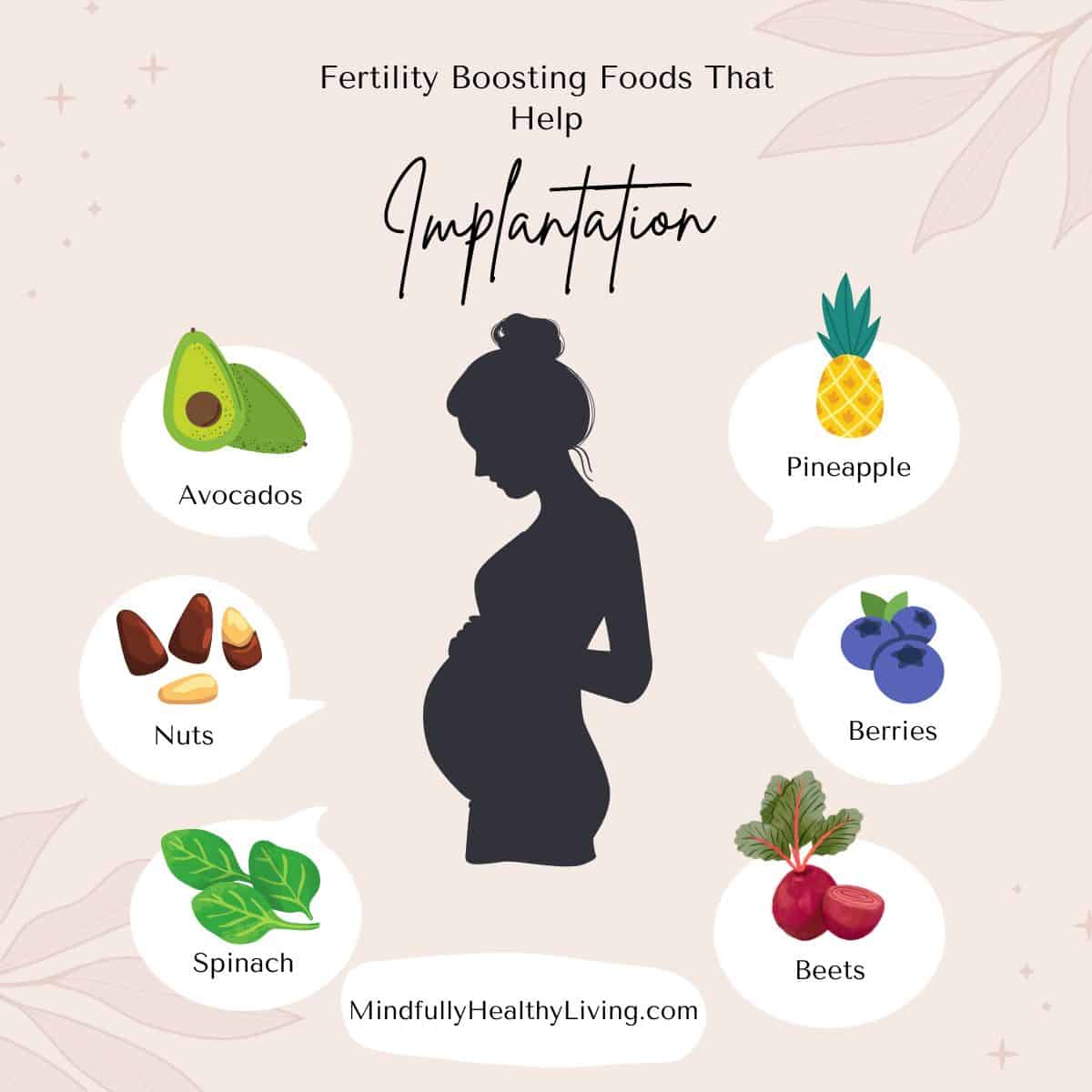
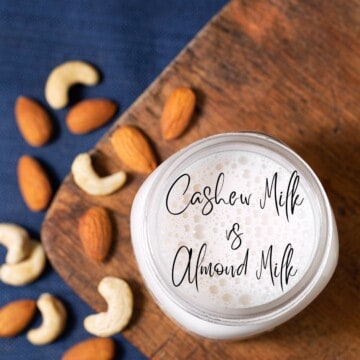
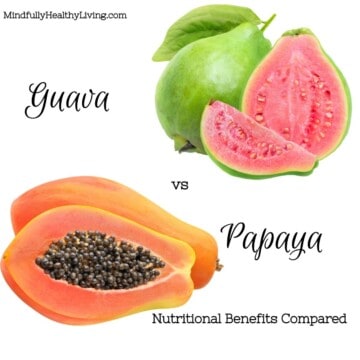
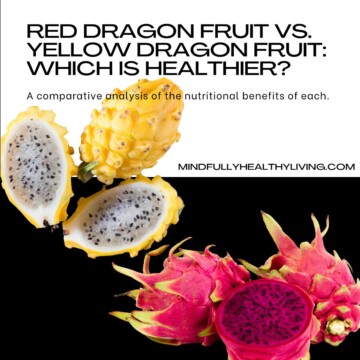
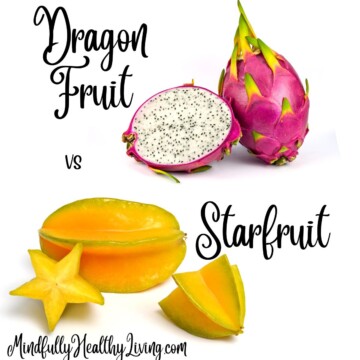
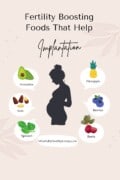
Comments
No Comments